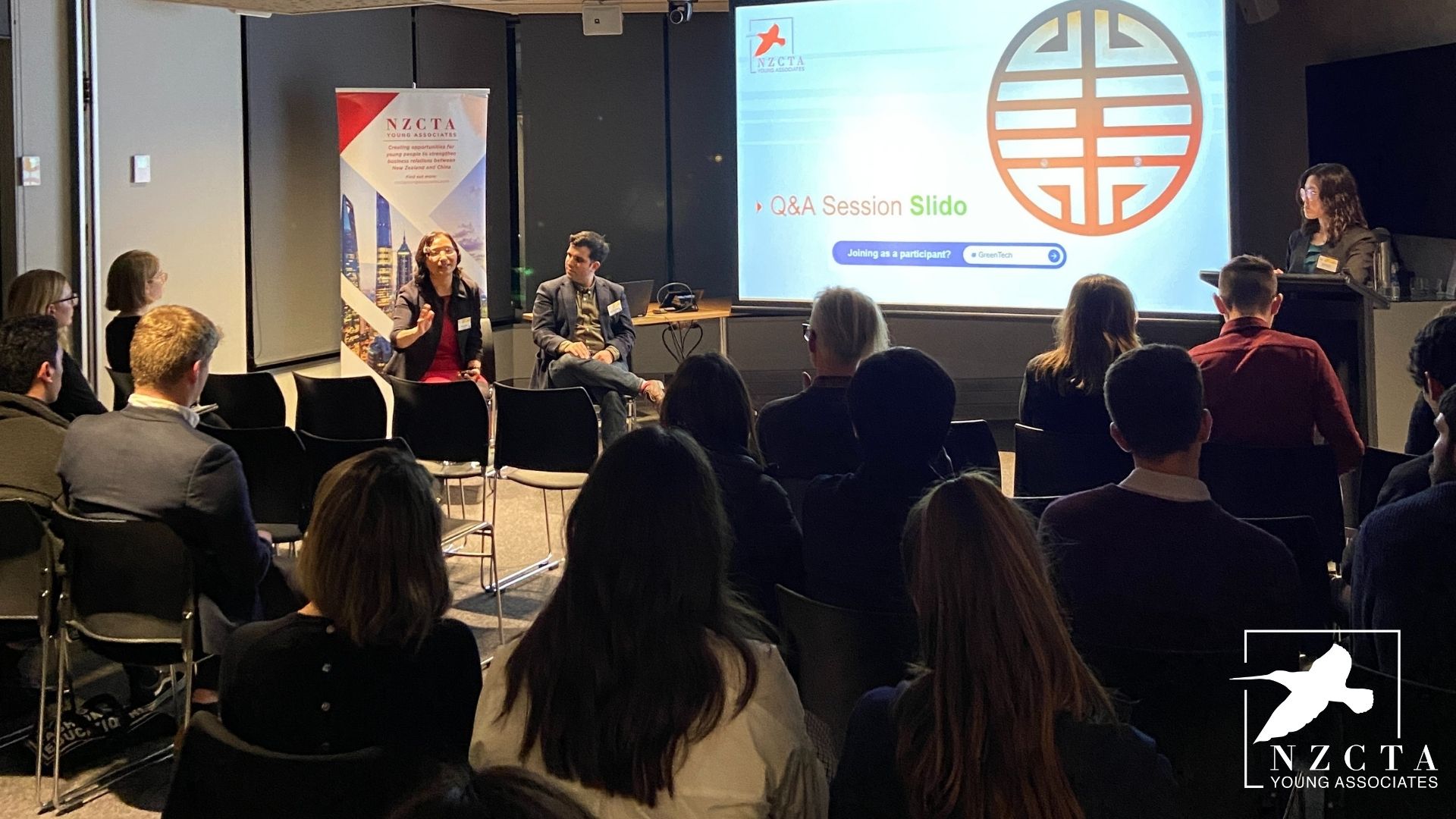NZ-China Trade and the FTA Upgrade
On the 27th of July, 2021 the Young Associates hosted a physical event in Auckland on a very topical issue: sustainability. The event covered the importance of innovative green technologies with the example of autonomous vehicles and the financing of green assets, both concerned with targeting the lowering of emissions.
First up was Dr Mahmood Hikmet, the Head of R&D at Ohmio. Mahmood launched us off with the definitions of what autonomous vehicles are, revealing that there are different levels of official automation ranging from 0-5. He then shared Ohmio’s journey, which started by hijacking and automating golf carts, before moving towards the automated and driverless shuttles that now operate at Christchurch Airport. Ohmio also has customers in South Korea, where the shuttle is fully road legal, and uses the world’s largest 3D printer to produce its vehicles, which are now being tested in Pakuranga.
Mahmood noted that green technology isn’t just about the technology itself, but also the surrounding infrastructure supporting it. How the tech is managed is just as important. For example, if the roads are too narrow for autonomous vehicles then it doesn’t matter how green they are, they can’t be used. He then delved into the data on why autonomous vehicles are important for sustainability. Looking at the statistics, transportation is where the biggest gains can be made when reducing carbon emissions. However, this takes time. For instance, if all vehicle production were switched to EVs today, it would still take fourteen years for the cars on the road to reach 50% electric.
Next up we had Karen Hou, CEO at ICBC New Zealand. Karen started off by noting that she had the tough task of talking about the topic that many people find boring: green finance. She thankfully walked us through this complex topic well, beginning with a breakdown of what climate finance is: structured financial activity that is used to ensure a better environmental outcome. One common kind of green finance instrument is green bonds, which are financial bonds where the issuer takes additional commitments to finance eligible green assets that promote the transition to a low-carbon and sustainable economy, and provide clear environmental sustainability and climate change benefits. These are very popular right now! She also shared the level of international collaboration currently happening in the green finance space, including the Task Force on Climate Related Financial Disclosure, which was created in 2015 by the G20.
Karen spoke about how the leader in green financing regulation is the UK, where by the end of 2021, all financial institutions will have to fully incorporate climate risk management into their ways of operation. ICBC itself is China’s leader of green investment and financing, with competition for this continuing to grow as China has written green finance into its national strategy.
Overall, the theme of the event was that sustainability is rising in importance, and trying out solutions to get us to a more sustainable future is key - even more so than trying to plan for every detail now. Finally, it was made clear that keeping people at the forefront of these discussions and taking them on the journey is also crucial.
Event review by Sonja

